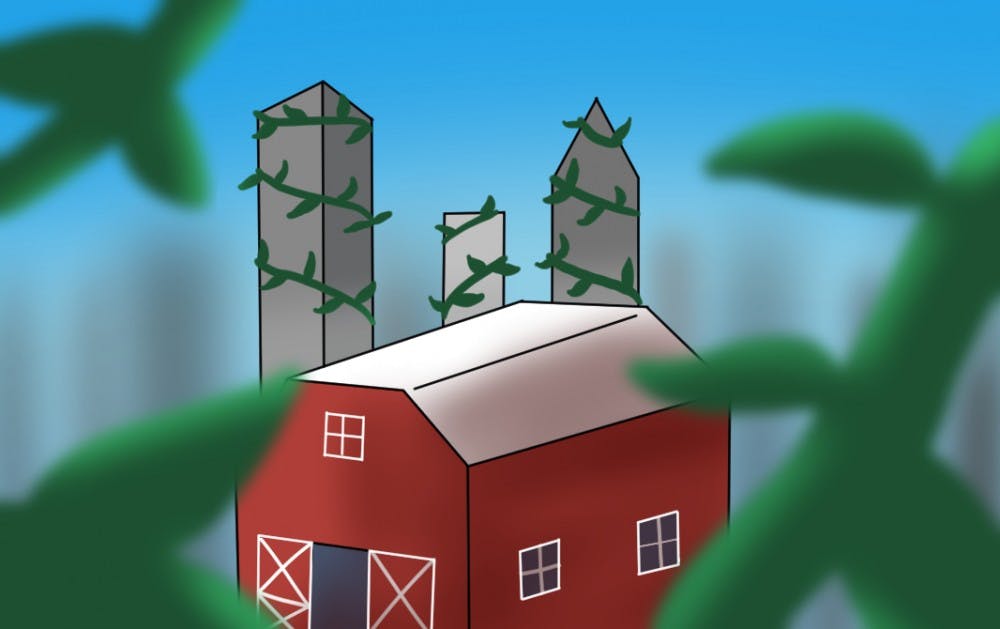Family-owned farms are decreasing as community gardens and urban agriculture find their footing in a world of food ethics.
In Arizona, it is not atypical to see farmland sold for urban development. Arcadia, a neighborhood located 10 miles from ASU's downtown Phoenix campus, was originally known for its citrus groves before the land was sold for development.
Similarly, the ASU Polytechnic campus hosts the Morrison School of Agribusiness, which was given its name to honor ASU alumni Marvin and June Morrison, who donated farmland to the school in 1998.
David King, an assistant professor in the School of Geographical Science and Urban Planning, said larger farms may be suffering from a shifting economy that relies less on citrus and more on housing.
“Agriculture is very resource intensive to grow here,” King said. “A lot of the agriculture that supported the economy in earlier stages just isn’t as critical to the economy now.”
He said that there are people in urban planning who see a future in urban agriculture, which is popular due to its sustainable appeal.
Kristen Osgood, a program manager for the Rob and Melani Walton Sustainability Solutions Service, said supporting local farmers could save travel time and quality in the foods people eat. She also said protecting farmers is extremely important as farmland is sold for housing development.
“We saw this happen in Mesa, where people were buying land next to a well-established feed-lot and then complained about the smell and tried to have it shut down — farmland isn’t something that grows back, once it’s gone, it’s gone, and that’s something we need to protect,” she said.
Osgood said that while farmers should be protected, growing food in a community garden setting could be valuable sustainably, physically and mentally as well.
Greg Peterson, owner of the Urban Farm in Phoenix, said his urban farm takes up a third of an acre and offers free webinar classes and other tools for users to educate themselves on sustainability topics.
“Something we think is important is growing food where we live,” Peterson said. “We have classes, tours and everything we grow here is grown organically.”
Peterson said that while there has been an increase in younger visitors, the most common visitors are baby boomers who want to know more about the way their food is grown.
Even though urban agriculture offers a more sustainable, local option for produce, it may bring gentrification.
Daoqin Tong, an associate professor in the School of Geographical Sciences and Urban Planning who has studied community gardens and urban agriculture said that in her work, said she saw that it was more difficult for community gardens to be successful in low-income areas.
“For a lot of community gardens, people will pay fees to keep it around,” Tong said. "A problem with that is, in the summer, it’s very hard to grow anything, so that money goes to an empty garden. For wealthier families, the pay just doesn’t seem like that much.”
She said lower income families often cannot dedicate the time to maintaining a garden if they are working multiple jobs to support themselves.
Danielle Vermeer, a junior majoring in sustainability and urban planning, said that community gardens and urban agriculture have unreached potential in providing for communities.
“I volunteered at the Tiger Mountain Foundation through ASU," Vermeer said. "What we did was work on an urban farm for people who were incarcerated and are trying to integrate back into the community. As much as I think it would be nice for people to use gardens as a food source, at the moment I do see gardening as more of a privilege.”
Reach the reporter at kreinha3@asu.edu and follow @ReinhartKatelyn on Twitter.
Like The State Press on Facebook and follow @statepress on Twitter.




